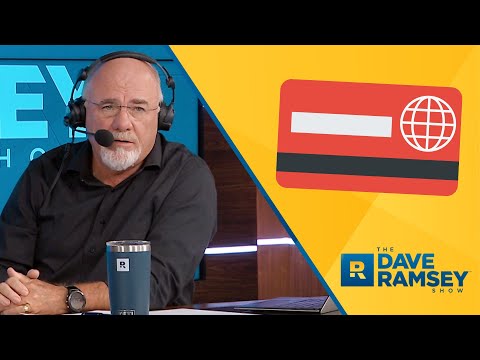Debt can be a slippery slope. It’s like a quicksand that pulls you down before you even know you’re sinking. But, fear not! Debt consolidation could be your lifeline, offering a structured and potentially less overwhelming pathway out of debt’s clutches. In the ever-evolving financial market of 2024, with consumer debt statistics setting new records, understanding how to navigate the seas of debt consolidation is more crucial than ever. So, let’s embark on this journey together and uncover how you can consolidate your debts effectively and regain control over your financial health.

Understanding Debt Consolidation: The Essentials
You’ve likely heard the term ‘debt consolidation’ tossed around like a hot potato. But what’s the meat and potatoes of it all? Debt consolidation is like a financial wizardry act where you roll multiple debts into a single, new loan. This move can create a simpler, more manageable payment plan. As we dig into the recent trends of debt consolidation, we’ve observed that consumers today are leaning towards consolidating their debts for the sudsy allure of lower interest rates and the convenience of a single monthly payment.
A comprehensive description unveils two main types of consolidation: loans and balance transfers. Debt consolidation loans function by combining various debts into one loan, ideally with more favorable terms such as a reduced interest rate or a lower monthly payment. On the other side, balance transfers involve moving existing credit card balances to a new card, often with a promotional zero-percent interest rate—albeit, typically for a limited time.
Let’s take a deep dive into interest rates, fees, and loan terms. It’s a maze that requires a magnifying glass and a Sherlock Holmes cap. Depending on your creditworthiness, you might snag a lower interest rate, but watch out for that pesky fine print! Fees can masquerade as upfront costs or hidden charges, so keep your eyes peeled. Loan terms spell out the duration of your payment saga: shorter terms mean higher monthly payments, but less interest over time, while longer terms ease monthly payments at the cost of more interest paid in the long run.

Evaluating Your Debt: Is Consolidation Right for You?
Consider this the ‘look before you leap’ phase. To leap into debt consolidation, one must first understand their own financial picture as if it were a Van Gogh painting. Start with the basic yet poignant “Debt-to-income Ratio” to gauge whether you’re in deep waters or just wading through a puddle. This magical ratio measures your ability to manage monthly payments and repay debts.
Your debt can be as diverse as the “Madtv cast,” with secured debts like mortgages tied to assets, and unsecured debts like credit cards, free-floating in your financial sea. Calculating your total debt sets the stage, and understanding your Credit Score is like knowing your creditworthiness passport number—it’s crucial.
When looking at consolidation’s impact on your personal finances, factor in the psychological relief of managing fewer payments against the reality that this strategy can initially put a dent in your credit score—how big of a dent? Think of it as a small scratch on your car door, dropping your score by about 10 points due to a hard inquiry, but just for a year.

| Aspect | Details |
|---|---|
| Definition | Combining several debts into one single loan typically with a lower interest rate. |
| Purpose | Simplify debt management & potentially reduce total interest expense. |
| Impact on Credit Score (Short-Term) | Hard inquiry may decrease score by less than 5 points; typically rebounds within a few months. |
| Impact on Credit Score (Long-Term) | Can improve if debt is managed well; may initially drop if settling debt but can recover and improve over time. |
| Credit Check | Required for application; results in a hard inquiry. |
| Average Interest Rate | Approximately 6% to 36% (as of Dec 1, 2023). |
| Fees | May have upfront fees; varies by lender. |
| Loan Providers | Banks, credit unions, and installment loan lenders. |
| Debt Relief Services | Firms like Accredited Debt Relief negotiate to settle debts for less; could negatively impact credit. |
| Risks | Potential for a higher interest rate than current debts; upfront costs; could accrue more debt if not careful. |
| Benefits | Lower monthly payments; reduced interest rates; streamlined payment process; potential cost savings. |
Comparing Debt Consolidation Services: Finding the Best Fit
Imagine you’re at a buffet—it’s a smorgasbord of debt consolidation services. You want to fill your plate wisely. The key is to look for the prime rib of services: are they accredited, what’s the word on the street about them, any red flags such as astronomical fees or interest rates that spike overnight? To refine your palate, consider creating a “sexy girlfriend” checklist or matrix—sexy because it’s attractive in its clarity and beneficial outcomes.
While comparing services, don’t just skim through like it’s a bad “Celebrity movie archive“—you’re after an Oscar-worthy performance. A reputable service shouldn’t just roll out the red carpet initially but should offer ongoing support. Can they charm you with better interest rates or flexible payment options?
Engage in a deep dive case study review. Picture two hypothetical friends, Alice and Bob. Alice took the path of debt consolidation with a reputable service and now enjoys a manageable monthly payment and clarity of term while Bob, unfortunately, encountered high fees and an interest rate hike after being dazzled by bold promises. Don’t be like Bob.

Crafting a Consolidation Strategy: Tailored Tips for Success
A tailored suit fits you like a glove; think of your debt consolidation strategy in the same light—custom-designed for you. Let’s lace up our strategic boots and march toward success. Whether you want to pay off debt at the speed of light or reduce payments to breathe more easily each month, fin-tech tools are here to customize your plan with the precision of a bespoke suit.
Personal habits, like splurging or penny-pinching, can either grease the wheels or throw a spanner in your consolidation efforts. Behavioral finance explains why some folks keep buying shoes they don’t need while others squirrel away every dime. Knowing thyself helps in crafting a strategy that sticks.

Long-Term Financial Health: Maintaining Momentum Post-Consolidation
Post-consolidation is not the time to rest on your laurels. It’s about maintaining the momentum like a marathon runner with their eye on the prize. In today’s app-driven world, there are tools a-plenty to sustain your financial fitness. From budgeting apps that track every coffee you sip to investment tools that help your money grow, technology is a staunch ally in your quest to stay debt-free.
A holistic approach post-consolidation is like a well-balanced diet. You’ve got your budgeting veggies, saving proteins, and investing carbs. Throwing in a few grieving mom superfoods—in this case, rock-solid financial habits—that keep showing positive results, as per recent case studies, make the diet successful and sustainable.
Conclusion: Solidifying Your Debt-Consolidation Journey
Ladies and gentlemen, we’ve reached the final destination of our debt consolidation odyssey. Remember, this was not just a tour; it’s the beginning of your path to financial liberation.
We’ve armed you with the means to understand, evaluate, compare, and strategize your debt consolidation for a healthy financial future. The importance lies in tailoring the experience to your unique circumstances, as personal as your handwriting.
As you voyage back to your daily life, clutching the map we’ve charted, remember that the greatest treasure isn’t the one you find. It’s the financial freedom you reclaim through informed decision-making and strategic planning. Now go forth and take on the world, my savvy consolidators!
Demystifying Debt Consolidation: Trivia and Facts That’ll Knock Your Socks Off!
Alright, folks, let’s dial down the doom and gloom surrounding debts and crack open the nut that is debt consolidation with some trivia and facts that are sure to give your brain a bit of a workout.
Did You Know? The Rizz of Finances
Rizz isn’t just a slang term that’s buzzing on the internet; it has infiltrated the world of debt consolidation too! Just like having ‘the rizz’ can up your game in social situations, having a solid handle on Rizz meaning in finances can up your game in managing those pesky debts. Think about it, debt consolidation can be like the swag of finance – it groups your debts together, making them easier to manage, and gives you a confidence boost knowing you’re on the right track to financial freedom.
Fun Fact: A Deed a Day Keeps the Debt Away
When chatting about managing our assets, one might quip, “As crucial as a roof over your head!” And while that’s true, understanding the importance of a “Deed” is just as essential when talking mortgages and property. In the world of debt consolidation, deeds don’t dance around. They’re key players in ensuring that assets are accounted for. And get this: sometimes, a deed—yes, the simple piece of paper that says ‘you own it’—can be used in debt consolidation to secure a loan and potentially lower interest rates. Talk about a game-changer!
The Odd Tale of the First Debt Consolidation
Hold onto your hats because this one’s a doozy. Way back before smartphones and online banking, folks had to lug around their multiple debt notes from different lenders. Would you believe that once upon a time, some ingenious borrower likely had an ‘aha!’ moment and thought, “Why not tackle all these at once?” And voilà, the concept of debt consolidation was probably born out of pure convenience and desperation. Imagine that – a time when consolidating debt was as groundbreaking as the wheel or discovering fire!
The Snowball Effect: Not Just for Snowmen
Ever built a snowman and watched that first small ball of snow become a gigantic snow boulder as you roll it through the yard? That’s pretty much the snowball effect – and guess what? It applies to debt too! Debt consolidation can sometimes have a snowball effect on your finances, where you start small, tackling the little debts first, and then, as those get sorted, you gain momentum and move onto the big guns. Before you know it, you’re debt-free with a sense of accomplishment bigger than that snow boulder!
Say What?! Is Debt Consolidation Right for You?
Well, that’s the million-dollar question, isn’t it? Debt consolidation isn’t a one-size-fits-all magic trick. It’s an option that requires a bit of a ‘poke around, see what’s what’ attitude. If your debts have been throwing a wrench in your plans, and you’re tired of the juggling act, then it might just be the golden ticket you’ve been searching for. Remember, knowledge is power, and doing your homework can mean the difference between staying in a financial fluster or paving a clear path to debt freedom.
In conclusion, don’t just jump on the debt consolidation bandwagon without looking under the hood. Take these fun facts and trivia, let ’em simmer in your brain pot, and make an informed decision that’ll have your future self thanking you big time. Debt consolidation can be your financial rizz if played right, and who doesn’t want to be the MVP of their finances?

Does debt consolidation hurt your credit?
Alright, let’s hit this head-on! Sure, debt consolidation might initially ding your credit a smidge since it involves applying for new credit, and hey, that means a hard inquiry. But hold your horses — in the long haul, it can actually help streamline your payments and potentially reduce your credit utilization, which could give your score a little love tap if you play your cards right.
Is it worth consolidating your debts?
Consolidating your debts can be like hitting the refresh button on your finances—but it’s not a silver bullet. It’s worth it if you snag lower interest rates and a payment plan that doesn’t make you want to pull your hair out. Plus, wrapping all those pesky payments into one could save you a headache or two!
What do you need to qualify for debt consolidation?
To hop on the debt consolidation train, lenders will want to peek at your credit score, weigh your income, check if you’ve got steady work, and make sure your debt-to-income ratio isn’t sky-high. It’s like a financial check-up; they want to know you’re fit enough to handle a new loan!
Does debt relief hurt your credit?
When it comes to debt relief, don’t be fooled—there’s no magic wand. Yep, it can potentially throw a wrench into your credit score, especially if your debts are settled for less than what you owe. Your credit report will be all, “Hey, what’s this?” and take note, but remember, it’s a short-term pain for a long-term gain.
How to get rid of 30k in credit card debt?
Gosh, 30k in credit card debt? Ouch. To ditch that mountain of debt, consider yanking out the big guns like a balance transfer card, debt consolidation loan, or a face-to-face with a credit counselor who can help make a game plan. Just don’t expect an overnight miracle!
What is the minimum credit score for debt consolidation loan?
Want a debt consolidation loan? Roll up with a credit score that’s at least in the mid-600s—lenders like to see that number. But the higher your score, the better your chances of scoring a loan with terms that won’t make you cringe.
Is Freedom Debt Relief legit?
Freedom Debt Relief? Sure, they’re legit, but like a fancy restaurant, check out the reviews first. They’ve helped a bunch of folks wave goodbye to their debt, but no company’s perfect. It’s always wise to do your homework before jumping in.
How can I pay off my credit card debt if I have no money?
If you’re staring at your credit card debt like a deer in headlights without a penny to your name, take a deep breath. You can tackle this—one option is to ring up your creditors and spill the beans; you’d be surprised how often they’re willing to chat about a payment plan that doesn’t make you toss and turn all night.
Is it better to consolidate or settle debt?
When you’re at a fork in the road—consolidate or settle—each path has its pros and cons. Consolidating typically keeps your credit in better shape, but settling debts can be a quicker (though sometimes messier) escape route. Chew over your options and pick the one that doesn’t bite back.
Can I be denied debt consolidation?
Can you be told “no way, José” for debt consolidation? Unfortunately, yes. Factors like a dodgy credit history, low income, or sky-high debt can make lenders wary. It’s like trying to get into a club and not making it past the velvet rope.
Why am I getting denied for debt consolidation?
Getting the cold shoulder for debt consolidation? It could be your credit score’s seen better days, your income’s not up to snuff, or your debts are through the roof. Lenders are picky; if they think it’s riskier than a blindfolded game of darts, they might just pass.
What are 4 things debt consolidation can do?
Debt consolidation isn’t just a one-trick pony—it can lower your payments, give you a clear end date for paying off your debt, often reduce the crazy amount of interest you’re paying, and streamline your monthly bills so you’re not juggling more than a circus clown.
How to pay off $10,000 credit card debt?
In need of an escape plan for that $10,000 credit card debt? Consider budgeting like a pro, tossing extra cash at the debt, or maybe consolidating if the interest rates look sweet. Treat it like a leaky faucet—if you don’t fix it, it’ll just keep dripping away!
How do you get out of debt when you are broke?
If your pocket’s echoing with the sound of no cash, but you’re still up to your ears in debt, it’s time for a battle plan. Craft a bare-bones budget, hustle for some extra dough on the side, or see if a debt management plan fits like a glove—it’s all about finding the right tools for the job.
How do I ask for goodwill deletion?
Need a goodwill deletion? It’s as easy as pie—just draft a kindly worded letter to your creditor explaining your misstep and ask them if they’d be a peach and remove that negative mark. It’s like asking for a favor from a neighbor—do it nicely, and you might just get lucky.
Are there any disadvantages to consolidating debt?
Hold your horses—consolidating debt ain’t all sunshine and rainbows. Sure, you might snag a lower interest rate, but you could also end up stretching out your payments over more years than a cat’s got lives. And mind the fees; sometimes, they’re sneakier than a fox!
How can I consolidate my debt without affecting my credit score?
To touch up your credit without it taking a dive, ponder a balance transfer offer or a personal loan but keep your old accounts open to avoid messing with your credit age. Like keeping an old friend around, it shows you’ve got history.
What are the negative effects of consolidation loans?
Consolidation loans can sometimes rub your finances the wrong way. Look out for the longer payment terms, which can end up costing you more in the long run. Plus, those initial fees and the risk of collateral damage if it’s a secured loan can be like playing financial hot potato.
How long does it take your credit to recover from debt consolidation?
After consolidating, your credit could bounce back faster than a boomerang—or it might take a few birthdays. If you’re keeping up with payments and your credit mojo is strong, you could see improvement in a few months. It’s a waiting game, so patience is key!



